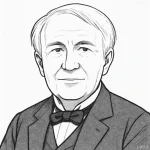“Stem cell research is the key to developing cures for degenerative conditions like Parkinson’s and motor neuron disease from which I and many others suffer. The fact that the cells may come from embryos is not an objection, because the embryos are going to die anyway.”

- January 8, 1942 – March 14, 2018
- British
- Theoretical physicist, science writer
table of contents
Quote
“Stem cell research is the key to developing cures for degenerative conditions like Parkinson’s and motor neuron disease from which I and many others suffer. The fact that the cells may come from embryos is not an objection, because the embryos are going to die anyway.”
Explanation
In this quote, Stephen Hawking expresses his support for stem cell research, specifically the use of embryonic stem cells in developing treatments for debilitating diseases like Parkinson’s disease and motor neuron disease (ALS), which he personally suffered from. Embryonic stem cells are considered valuable in this context because they have the potential to differentiate into any cell type in the body, making them ideal candidates for regenerative medicine aimed at replacing damaged cells or tissues.
Hawking’s stance reflects his broader views on scientific progress, where ethical concerns about the origins of stem cells are weighed against the potential benefits to human health. The controversy surrounding stem cell research, particularly with respect to the use of embryonic cells, centers on the ethical dilemma of whether it is justifiable to use human embryos, which could otherwise develop into a fetus, for medical purposes. However, Hawking argues that since the embryos used in this research would not survive anyway (in many cases, due to infertility treatments or natural causes), the ethical concern about destroying them is less significant compared to the potential life-saving benefits of such research.
This position places Hawking in line with many scientists and policymakers who argue that the scientific and medical advancements enabled by stem cell research can ultimately lead to cures for currently incurable diseases, offering hope to millions of people suffering from conditions that involve degeneration of cells, like motor neuron disease. Despite the potential moral and philosophical debates, Hawking’s focus was on the tangible benefits of stem cell research for human health, and he emphasized the importance of pushing forward with scientific endeavors to alleviate suffering.
Would you like to share your impressions or related stories about this quote in the comments section?


